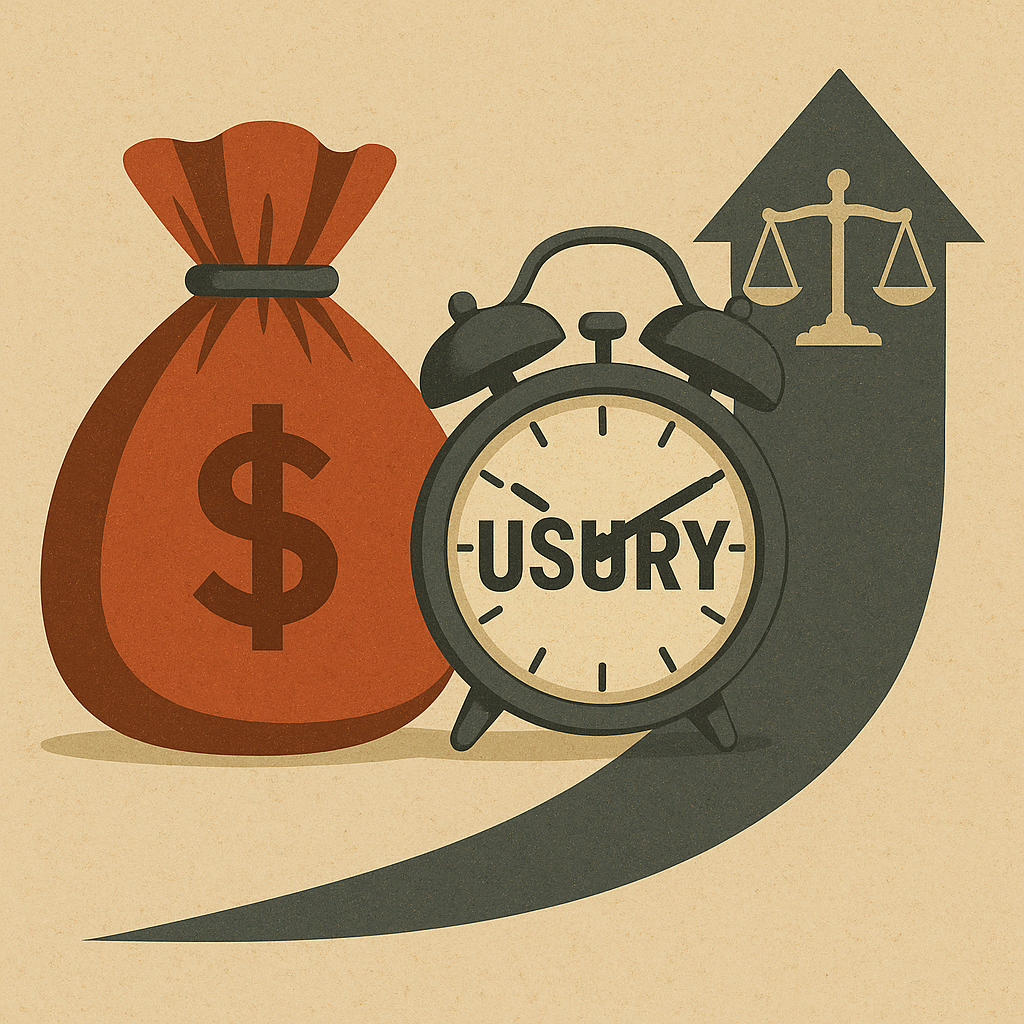How to Prove a Lender Charged Illegal Interest Rates in Thailand

If you’re trying to prove a lender charged illegal interest rates, Thai law is on your side. Loan agreements that violate statutory interest ceilings can lead to contracts being partially voided or adjusted by the court.
In this guide, our legal team explains the key legal tests used by Thai courts to evaluate interest rate violations, what evidence borrowers need to prepare, and what legal outcomes may follow. Whether you’re being sued by a lender or challenging unfair repayment terms, this post offers clear, evidence-based strategies , drawn from the experience of a lead law firm in Bangkok.
🔎Overview: When Is Interest “Illegal” Under Thai Law?
Loan contracts in Thailand are governed by the Civil and Commercial Code, which limits interest rates to no more than 15% annually, unless authorized by other statutes.
Even if a borrower signs a contract willingly, Thai courts may still strike out any provision that results in an unlawful or disguised interest rate. In many recent cases, borrowers have successfully contested unfair terms , especially when interest was charged upfront, or monthly payments far exceeded what’s reasonable.
📘 Reference:
-
Thai Civil and Commercial Code (unofficial English version, PDF) – See Section 654
💡Why It Matters: Proving a Lender Charged Too Much
Proving that a lender charged illegal interest isn’t always simple. The contract itself might appear compliant, but the repayment behavior, money transfers, or hidden deductions tell a different story.
To successfully challenge such loans, you’ll need to show that:
-
The actual money received was less than stated
-
The repayment structure masks excessive interest
-
The deal lacked transparency or fairness
✅ 3 Key Legal Issues to Prove in Court
1. Did You Receive the Full Principal?
Unlicensed lenders often deduct fees or advance interest before disbursing the loan. If your loan agreement says you received 1,000,000 THB but you only got 700,000 THB, the 300,000 THB might count as disguised interest , potentially making the contract partially void.
🔍 What to present:
-
Bank statements
-
Transfer confirmations
-
Chat logs or digital messages
2. Was the Effective Interest Rate Illegal?
Even if a contract doesn’t mention interest, courts assess the effective rate. Monthly payments that don’t reduce the principal can be a red flag.
📌 Example:
Paying 30,000 THB/month for 12 months on a 1,000,000 THB “0% interest” loan = 360,000 THB in hidden charges = 36% per year. This clearly exceeds the 15% cap.
📚 Further Reading:
3. Was the Transaction Reasonable?
Courts consider:
-
If the lender and borrower knew each other
-
Whether the terms seemed fair for the amount
-
Whether unusual instruments (multiple cheques or contracts) were used to hide interest
🚩 Hidden or Disguised Interest Schemes
Disguised interest structures may include:
-
Fixed monthly payments unrelated to principal
-
Fees deducted before fund disbursement
-
Post-dated cheques with inflated values
Such structures violate Thai legal principles of transparency and proportionality.
📘 For context on financial crime and lending abuses, see:
🧾 Acceptable Evidence to Prove Unlawful Interest
|
Evidence |
How It Helps |
|---|---|
|
Bank Records |
Prove actual money received |
|
Messaging Apps |
Show real agreement vs. formal contract |
|
Loan Receipts |
Reveal repayment structure |
|
Multiple Contracts |
Indicate an attempt to divide or hide true terms |
⚠️ Courts rely on documentary evidence more than oral testimony, especially when contracts appear neutral on the surface.
⚖️ Legal Consequences If You Prove a Lender Charged Illegal Interest
If the court finds unlawful or disguised interest:
-
The excess portion is void
-
Interest may be reduced to the legal ceiling (15%)
-
In serious cases, the whole contract may be voided
-
Lenders operating without a license may face criminal or civil penalties
❓ FAQs: Your Rights as a Borrower in Thailand
Q: Is it illegal to receive less money than the loan contract states?
Yes. Deducting fees or interest upfront can count as charging illegal interest.
Q: Can I be sued even if the lender charged too much?
Yes, but you can file a counterclaim or defense if you can prove the terms violated the law.
Q: What if my payments didn’t reduce the loan balance?
That’s often a sign of disguised interest, which is prohibited.
✅ Conclusion
If you’re in a legal battle over a loan, it’s essential to prove the lender charged illegal interest—either directly or through disguised means. Thai courts assess more than just the contract: they look at how the money was transferred, how repayments worked, and whether the transaction was fair.
Backed by clear evidence and experienced counsel from a leading law firm in Bangkok, you may be able to void illegal terms or reduce what you owe significantly.
Take action early. Gather documentation, speak with a legal professional, and assert your rights under Thai law.
Contact Information
Website: https://www.siamcenterlawgroup.com
Phone: +66(0) 865651791 , +66(0) 2 0970477 Available for consultation 5 working days a week
For support with preparing pleadings, submitting court documents, or exploring expedited dispute resolution, our Bangkok attorneys are ready to assist you with professionalism and clarity.
Get your English speaking Lawyer in Bangkok !
